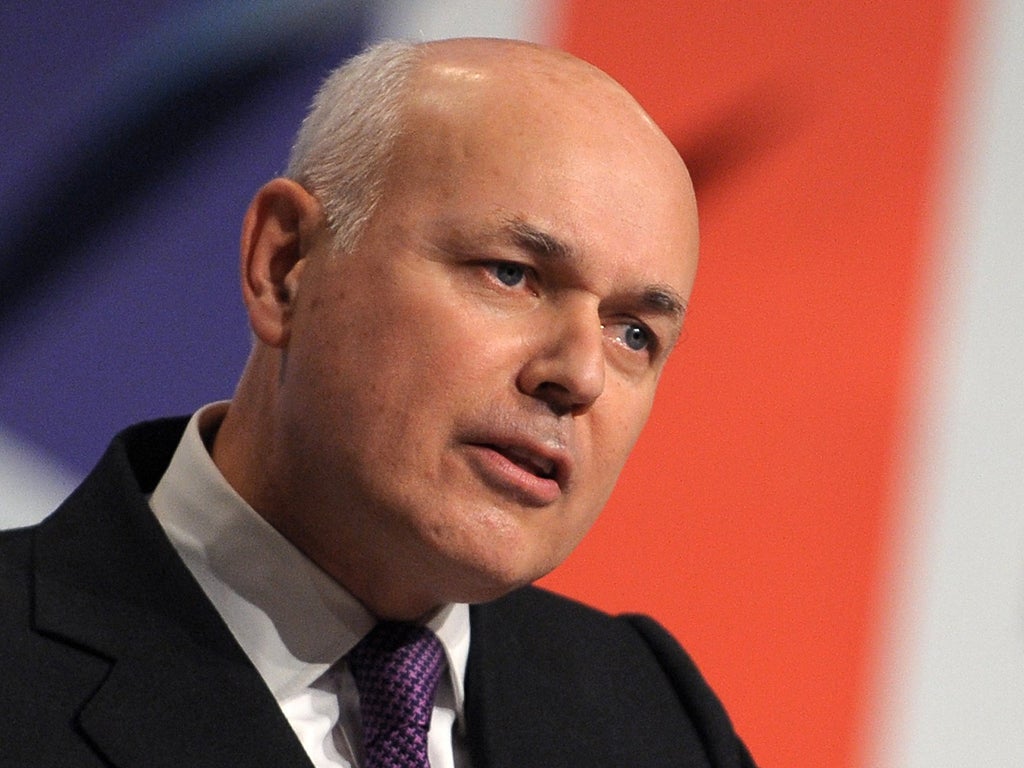Welfare reform challenge defeated

The Government comfortably survived the first of a series of crucial challenges to its controversial welfare reforms in the Lords today.
Ministers saw off a Labour-led move to exempt families threatened by homelessness from a benefits cap by 250 votes to 222, majority 28.
The vote came after work and pensions minister Lord Freud condemned the bid as a "wrecking amendment" which would render the policy "unworkable".
Opposition spokesman Lord McKenzie of Luton said his party backed the £26,000-a-year benefit cap but it had to be "based on fairness".
In report stage debate on the Welfare Reform Bill, Lord McKenzie warned that the cap "dramatically increased the prospects" of people becoming homeless and could force hard-pressed councils to pick up an even more expensive bill to re-house them.
He said the emotional and physical impact of uprooting families, and children in particular, from their local communities would be "traumatic".
But Lord Freud defended the cap, insisting households should not be able to receive more in benefits than the average family earned from work.
"People on benefits should face the same choices as working families, including where they can afford to live," he said.
After suffering three defeats on the legislation recently, ministers are facing a concerted attack from Labour peers, Church of England bishops and some Liberal Democrat rebels who want concessions.
Former Liberal Democrat leader Lord Ashdown warned yesterday that the plans to cap benefits were "completely unacceptable" in their current form.
Lord Freud promised an "organised" one-year transition period, telling peers: "Someone in work should always be better off than someone on benefits.
"The proposed cap of £500 a week is equivalent to an annual salary of £35,000 a year before tax."
Lord Freud said: "The worst thing for youngsters is to be in a workless household.
"We need to change behaviours and this benefit cap is designed to do that. We need to move towards the cap in a highly organised way.
"We will have a year to work with those families who are going to be affected."
Lord Freud said the simple answer for the bulk of them was to get them into work.
Lord Ashdown said the Government was doing something "extremely important" in reforming welfare and he supported them, but he threatened to vote with Labour on the amendment.
"I'm in favour of a benefit cap - I think it is important," he said. "But I think before we vote for this it is important to have a look at at least some of the transitional mechanisms."
Fellow Lib Dem Baroness Walmsley warned that she would vote with Labour on the amendment.
She said that although she supported the cap, there was a "potential for innocent victims of the Bill as it stands".
She added: "What we need to do is send it (the Bill) back to the Commons and tell them to think a little more about the measures that will be put in place - and I hope they are and I know the Government intends that they will be - to ensure that families with children are not made homeless."
The Bishop of Ripon and Leeds, the Rt Rev John Packer, a co-sponsor of the amendment, warned of the danger of children being forced to move school as a result of their parents becoming unemployed.
"This amendment will go some way to preventing a spiral of homelessness and it will relieve the pressure on some of those vulnerable people who are affected by this cap," he said.
The bishop later introduced an amendment that would exempt child benefit from the £26,000 cap - a move shadow work and pensions secretary Liam Byrne told the Commons earlier his party would support.
Bishop Packer said the cap "failed to differentiate between households with children and those without".
"It cannot be right for that to be the same for a childless couple as for a couple with children," he said. "Child benefit is the most appropriate way to right this unfairness."
He argued that the effect of the cap was to deny child benefit payments to people whose other benefits had reached £500 a week.
"This cap is not simply targeted at wealthy families living in large houses," he said. "It will damage those who have to pay high rents because often that rent has increased substantially in the course of their occupancy of that house."
He said the cost of the amendment would be £113 million a year, which he said was a very small amount in comparison to the entire welfare budget.
Liberal Democrat Lord Greaves said the Government's plans were the beginning of a "slippery slope".
"What is being proposed undermines the whole principle of child benefit," he said.
And Liberal Democrat Baroness Tyler of Enfield, chief executive of the relationship charity Relate, said: "I do not think children should be the innocent victims of this policy."
She warned there was a "penalty" for couples with children staying together, as if they split up it would enable both families to claim up to £26,000.
Later analysis of division lists showed there were 17 Liberal Democrat rebels: Lords Avebury, Greaves, Kirkwood of Kirkhope, Maclennan of Rogart, Oakeshott of Seagrove Bay, Roberts of Llandudno, Shipley, Smith of Clifton, Taylor of Goss Moor, and Baronesses Hamwee, Hussein-Ece, Miller of Chilthorne Domer, Sharp of Guildford, Thomas of Winchester, Tonge, Tyler of Enfield and Walmsley.
The other supporters of Lord McKenzie's amendment were 161 Labour peers, 31 crossbenchers, eight others and the bishops of Chichester, Leicester, Lichfield, Manchester, and Ripon and Leeds.
The Government was backed by 148 Tories, 42 Liberal Democrats, 52 crossbenchers, seven others and Labour peer Lord Donoughue.
PA
Join our commenting forum
Join thought-provoking conversations, follow other Independent readers and see their replies
Comments
Bookmark popover
Removed from bookmarks